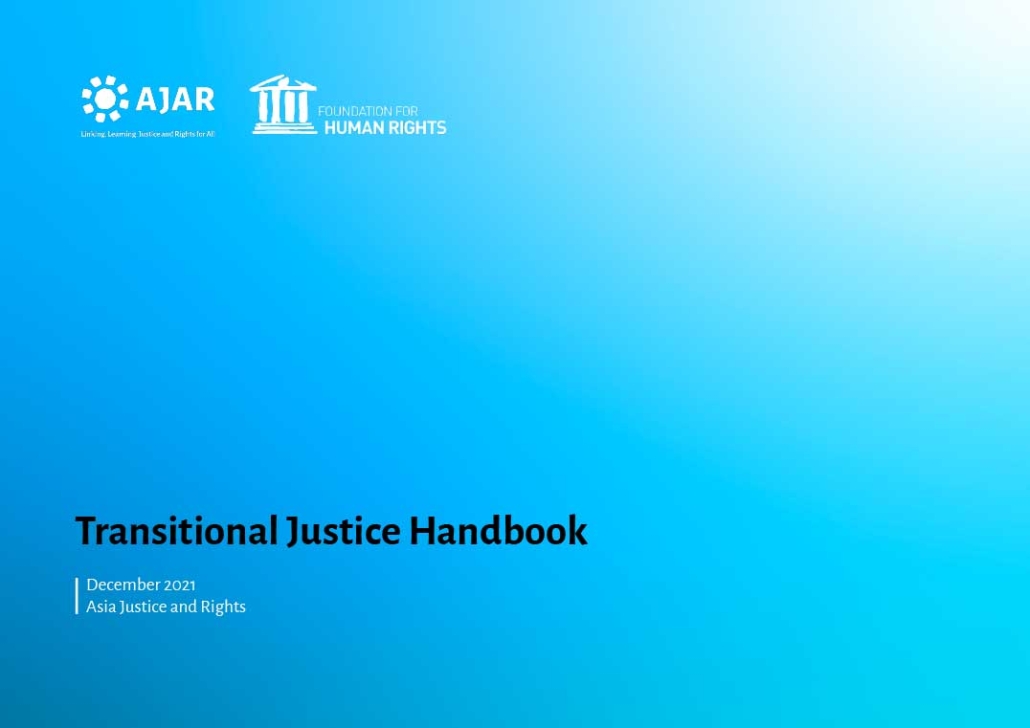Transitional Justice Handbook
In the late 1980s and early 1990s many countries in Latin America and Eastern Europe experienced the collapse of military dictatorships and other authoritarian regimes that had looted national resources and maintained power through ruthless crushing of opposition voices, protected by blanket impunity. The old regimes had been responsible for many thousands of serious crimes. This created significant challenges to already overloaded justice systems and national laws not designed to deal with mass crimes, nor command responsibility. The traditional criminal justice responses also held very limited potential to answer key questions such as why the mass crimes had been committed, what were the root causes, and how thousands of victims could be assisted. In response to the challenges, human rights activists and others began working on more comprehensive solutions involving holistic models of punishment, deterrence, healing, and reconciliation. A new term—“transitional justice”—began to be used to refer to the broader approach of dealing with past violations.
The new approach recognised that experiences of mass violations are rarely isolated. They occur over and over again in the same places, in cycles of violence. A transition to democratic rule does not by itself remove the root causes and enabling factors of mass crimes that, if not recognised, will re-emerge in similar or different forms. In order to break the cycles of violence it is necessary to courageously investigate and share the truth about why and how the violations occurred, identify and appropriately deal with the individuals and groups that were responsible, reveal and try to repair the devastating effect on victims lives, and undertake reforms that will help prevent recurrence.
There are many definitions of transitional justice. In this resource manual, we use the term to describe an evolving set of responses to systematic or widespread violations of human rights that aim to bring recognition to victims and survivors, and promote the rule of law, peace, reconciliation, and democracy.

Owner/Developer : AJAR
Language : English

